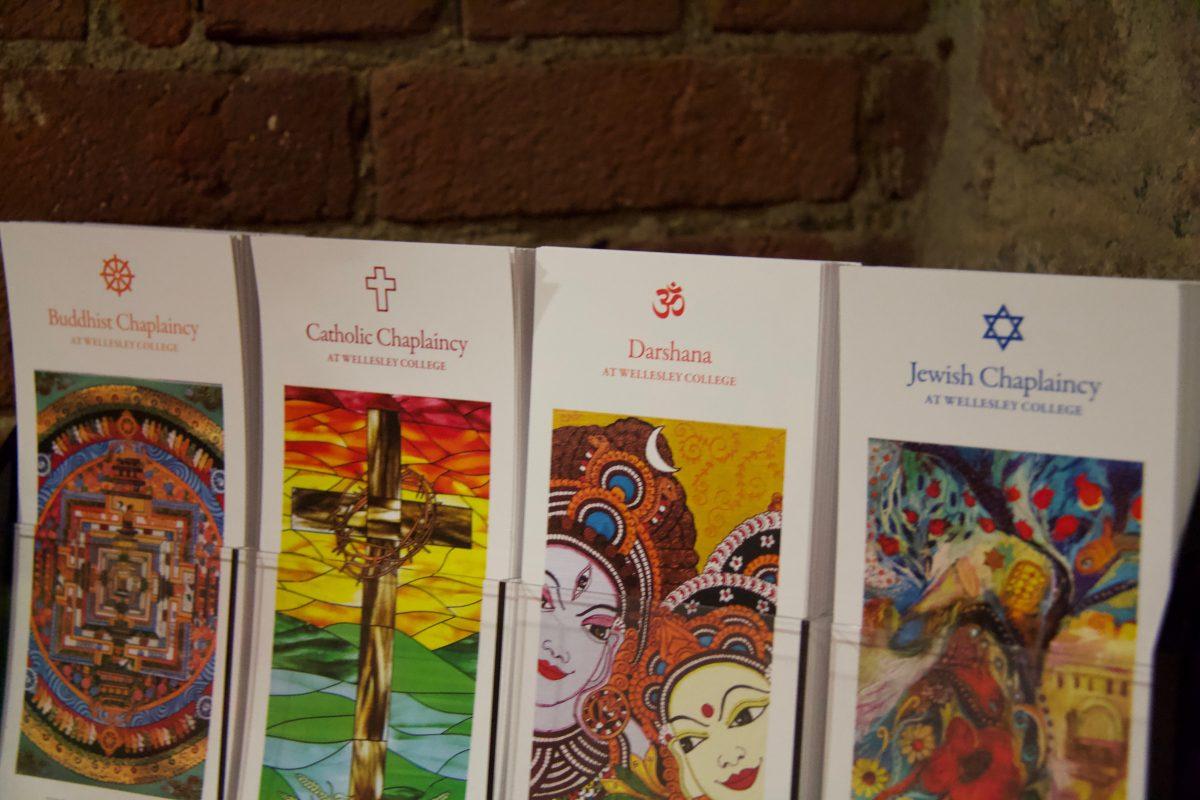Wellesley College’s Office of Religious and Spiritual Life (ORSL) has a unique and ambitious role on campus: to guide students as they adjust to a new place and find a home in a supportive, loving community.
“We are here to support students in just becoming who they want to be and in understanding all the different facets of their lives that they bring to campus,” said Amira Quraishi, the Muslim chaplain at Wellesley.
For Quraishi, this means making sure Wellesley is an inclusive, diverse setting for all students to discover their place.
“We’re not here to convert anybody [or] preach except in the designated places…We help [students] discover what those pieces are of home that they continue to be missing, and they get to know what other people’s pieces of home were and discover that,” she said.
Emily Jendzejec, Wellesley’s Catholic chaplain, discussed finding home in the context of the campus’ Catholic community.
“How can we be a faith community for students coming from different backgrounds? We experience the Catholic chaplaincy as a place for students to come find a spiritual place in their lives,” she said.
Religious leaders double as community leaders, a role carrying a responsibility to those that look up to them for spiritual guidance. Wellesley’s chaplains make ensure that guidance is available to every student by hosting events that are as inclusive as possible.
“My hope is that people feel a home church community where people feel comfortable expressing their faith…Part of that is Spanish Mass once a month [which came from] continuing to listen to what students’ needs are,” Jendzejec explained.
This sentiment is also expressed in the implementation of neighborhood chaplains, another resource for students who want to reach out to the ORSL. Jendzejec emphasized the importance of connection between neighborhood chaplains and students in their neighborhoods, even outside of students’ faiths.
“I’m the Catholic chaplain but I don’t only talk to Catholic students. I’m the chaplain for all of Bates, McAfee and Freeman. We can talk about big questions or I can put students in touch with the resources they need,” she said.
However, just because the ORSL works hard to be inclusive doesn’t mean there isn’t still work to be done.
When asked if the cherished Flower Sunday tradition was too Christian in its influences, Jendzejec replied, “It’s on a Sunday morning…Each year when we plan the service we ask this question: How to make it more inclusive and less like a church service? It takes time and continuing to ask that question, that persistence [is important],” she said.“How do we respect these traditions and rituals while validating the student body that is so much more diverse [than when the tradition started]?”
Quraishi noted that at Flower Sunday, one of the songs featured in the program was inspired by an Islamic scholar and poet named Rumi. To her, experiencing a Muslim song in a Christian way wasn’t necessarily bad, and she highlighted the fact that Flower Sunday was meant to focus on friendship.
“It’s just evidence of overlapping multiple styles and identities,” she said.“Having said that it still feels very Christian. I would say that the environment is the biggest factor. You know, being in a chapel.”
Celine Christory ’21, a Catholic leader on the school’s Multifaith Council also considers it a diverse experience.
“Its essence might be Christian even though it’s not. We have texts, songs and greetings from all faiths. In its core it’s multi faith but because people think of a certain religion when they enter a chapel–they will automatically see it [like that].” she said.
Faiza Aslam ’19, a Muslim student and also a leader on Wellesley’s Multifaith Council, saw the Christian influences as part of experiencing another point of view.
“Flower Sunday is one of my favorites. I’m a big traditions girl. I have come to appreciate Dean Tiffany’s Protestant [approach] and how comfortable she is in her faith,”she said.
Unfortunately, a majority-Christian society influences minorities more than just once a year on Flower Sunday.
“Sunday is the day for congregation. There’s no school, there’s no work… Friday is [Muslims’] day. And our services are actually right in the middle of the day. So, because of the way [it’s set up] I’m working and students have class and we have to juggle that constantly, every week…Every Friday is a reminder that the world doesn’t accommodate for us,” Quraishi explained.
When asked if she would hold Friday prayers in the chapel, Quraishi responded, “I like the idea of being in the chapel because it invites quiet meditation and sense that the worship we are doing is important.”
However, she cannot hold Friday prayers in the chapel because if Muslims were to pray in the direction of Mecca in the chapel, they would be facing a stained glass window with Christian religious figures and symbols. Muslim tradition forbids praying in front of images. A potential solution would be to install blinds over that window.
Jendzejec fully supports the idea and thinks it is crucial that we keep asking questions as a community to continue making the community more inclusive.
“It’s not just adding new people to the table but redoing the table. That’s exciting to think about,” she said.






